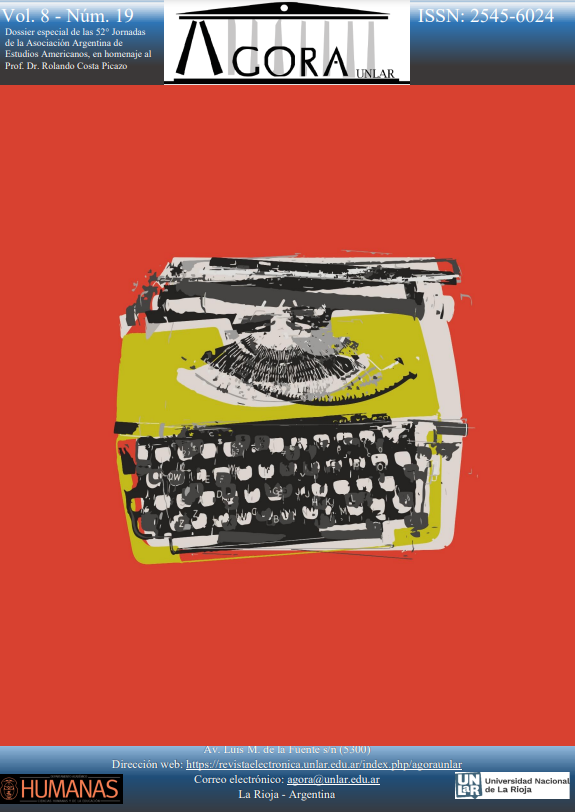Parodia y deconstrucción posmoderna en los últimos días de Judas Iscariote, de Stephen Adly Guirgis
Palabras clave:
posmodernismo, parodia, deconstrucción, teatro norteamericanoResumen
La obra teatral Los últimos días de Judas Iscariote, escrita por Stephen Adly Guirgis y llevada a escena en 2005, deconstruye el lugar que Judas Iscariote ocupa en el imaginario colectivo, valiéndose de una actitud crítica, cuestionadora y hasta irreverente (Bauzá, 2003) hacia lo establecido y lo consagrado, propia de la Posmodernidad. Con un proyecto estético que apunta al humor irónico y al absurdo, la obra de Adly Guirgis puede enmarcarse en lo que Linda Hutcheon (1993) denomina “parodia posmoderna”, en tanto se presenta una serie de supuestos sobre los personajes y temas, que son deconstruidos críticamente para luego ser reelaborados nuevamente de forma creativa. En el proceso de reconstrucción, el dramaturgo da cuenta –tanto en el texto dramático y como en la puesta en escena– de una serie de recursos que Hugo Bauzá reconoce como propiamente posmodernistas: la fragmentariedad en las escenas, el quiebre en el uso tradicional de la lengua, la desacralización de figuras religiosas y personalidades consagradas por la historia, la presencia del teatro dentro del teatro, entre otras.Parody and postmodern deconstruction in the last days of Judas Iscariot, by Stephen Adly Guirgis AbstractThe play The Last Days of Judas Iscariot, written by Stephen Adly Guirgis and staged in 2005, deconstructs the place that Judas Iscariot occupies in the collective imagination by using a critical, questioning and even irreverent attitude (Bauzá, 2003) towards the established and the consecrated, a tactic which is characteristic of Postmodernism. With an aesthetic project that aims at ironic humor and absurdity, the work of Adly Guirgis can be framed in what Linda Hutcheon (1993) calls "postmodern parody", insofar as a series of assumptions are presented about the characters and themes, which are critically deconstructed to be later creatively reworked again. In the process of reconstruction, the playwright uses -both in the dramatic text and in the staging- a series of resources that Hugo Bauzá recognizes as postmodernist: the fragmentary nature of the scenes, the break in the traditional use of language, the desacralization of religious figures and personalities consecrated by history, and the presence of the theater within the theater, among others.Keywords: Posmodernism, Parody, Deconstruction, American TheaterDescargas
Publicado
21-09-2023
Número
Sección
ARTÍCULOS DE INVESTIGACIÓN O REVISIÓN TEÓRICA





